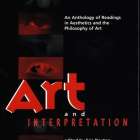
Art and Interpretation
Art and Interpretation is a comprehensive anthology of readings on aesthetics. Its aim is to present fundamental philosophical issues in such a way as to create a common vocabulary for those from diverse backgrounds to communicate meaningfully about aesthetic issues. To that end, the editor has provided selections from a wide variety of challenging works…
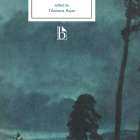
Mandeville
William Godwin’s Mandeville was described as his best novel by Percy Shelley, who sent a copy to Lord Byron, and it was immediately recognized by its other admirers as a work of unique power. Written one year after the battle of Waterloo and set in an earlier revolutionary period between the execution of Charles I…
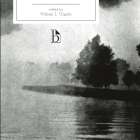
The Correspondence of Samuel Clarke and Anthony Collins, 1707-08
An important work in the debate between materialists and dualists, the public correspondence between Anthony Collins and Samuel Clarke provided the framework for arguments over consciousness and personal identity in eighteenth-century Britain. In Clarke’s view, mind and consciousness are so unified that they cannot be compounded into wholes or divided into parts, so mind and…

Barford Abbey
The great-grandmother of Downton Abbey, Barford Abbey is among the first of a new genre of “abbey fictions.” Using the abbey as both a site and a question mark, Susannah Minifie Gunning weaves a story of new and broken relationships, of change and fear of change, and of heredity and inheritance. The abbey becomes not…
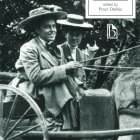
Plays on the Passions
Baillie’s eminently readable dramas stand at the crossroads of the Scottish Enlightenment and early Romanticism, and compellingly engage with questions of women’s rights. Her exploration of the passions, first published in 1798, is here reissued with a wealth of contextual materials including “The Introductory Discourse,” Baillie’s own brand of feminist literary criticism. The three plays…
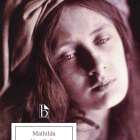
Mathilda
Mary Shelley’s Mathilda, the story of one woman’s existential struggle after learning of her father’s desire for her, has been identified as Shelley’s most important work after Frankenstein. The two texts share many characteristics, besides authorship and contemporaneity: both concern parental abandonment; both contribute to the Gothic form through themes of incest, insanity, suicidality, monstrosity,…
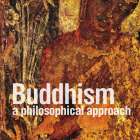
Buddhism
This book philosophically introduces the basic truths, doctrines, and principles of Buddhism. Its goal is to explain the teachings of the Buddha and of Buddhism clearly and consistently. Though the book treads beyond the Buddha’s life, including into the Abhidharma and Mahayana traditions, it remains throughout a philosophical discussion and elaboration of the Buddha’s thought.…
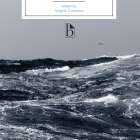
The Interesting Narrative of the Life of Olaudah Equiano
The Interesting Narrative of the Life of Olaudah Equiano was a key work of nineteenth-century slave narrative autobiography. Written and published by Equiano, a former slave, it became a prototype for the narratives that followed. Kidnapped in Africa as a child, Equiano was transported to the Caribbean and then to Virginia, bought by a Quaker…
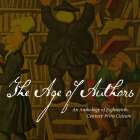
The Age of Authors
Eighteenth-century critics differed about almost everything, but if there was one point on which they almost universally agreed, it was that they were living through an age of extraordinary change. The texts in this collection respond to a series of fundamental questions about the changing nature of the literary field during a tumultuous age: What…
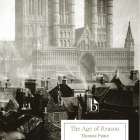
The Age of Reason
The Age of Reason is one of the most influential defences of Deism (the idea that God can be known without organized religion) ever written. This edition presents Part 1, Paine’s controversial philosophical argument against revealed religion, with representative excerpts of his biblical analysis from Parts 2 and 3. Appendices include numerous selections from Paine’s…
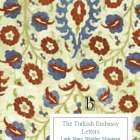
The Turkish Embassy Letters
In 1716, Lady Mary Wortley Montagu’s husband Edward Montagu was appointed British ambassador to the Sublime Porte of the Ottoman Empire. Montagu accompanied her husband to Turkey and wrote an extraordinary series of letters that recorded her experiences as a traveller and her impressions of Ottoman culture and society. This Broadview edition includes a broad…
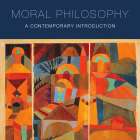
Moral Philosophy: A Contemporary Introduction
Moral Philosophy: A Contemporary Introduction is a compact yet comprehensive book offering an explication and critique of the major theories that have shaped philosophical ethics. Engaging with both historical and contemporary figures, this book explores the scope, limits, and requirements of morality. DeNicola traces our various attempts to ground morality: in nature, in religion, in…
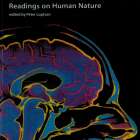
Readings on Human Nature
This anthology brings together 45 selections by a wide range of philosophers and other thinkers, and provides a representative sampling of the approaches to the study of human nature that have been taken within the western tradition. The selections range in time from the ancient Greeks to the 1990s, and in political orientation from the…
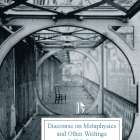
Discourse on Metaphysics and Other Writings
This is an edition of what are arguably Leibniz’s three most important presentations of his metaphysical system: the Discourse on Metaphysics, from 1686, and The Principles of Nature and of Grace and The Monadology, from 1714. Based on the Latta and Montgomery translations and revised by the editor, these texts set out the essentials of…

Sophia
The first novel to be written for serial publication by a major female author, Sophia follows the story of two siblings, the virtuous and well-read eponymous heroine and her flighty and coquettish sister. While the latter leads a vapid life in the fashionable world of London, the former flees from a potential seducer to the…
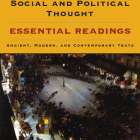
The Broadview Anthology of Social and Political Thought: Essential Readings
This volume features a careful selection of major works in political and social philosophy from ancient times through to the present. Every reading has been painstakingly annotated, and each figure is given a substantial introduction highlighting his or her major contribution to the tradition. The anthology offers both depth and breadth in its selection of…
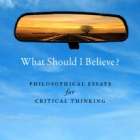
What Should I Believe?
This book is unique in its treatment of critical thinking not as a body of knowledge but instead as a subject for critical reflection. The purpose of the anthology is to turn critical thinking classes into invitations to philosophical conversations. The collection introduces students to difficult philosophical questions that surround critical thinking, moving away from…
- « Previous
- 1
- 2
